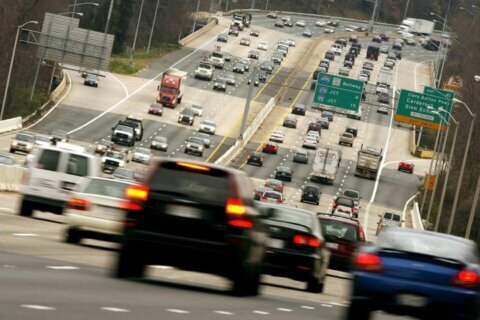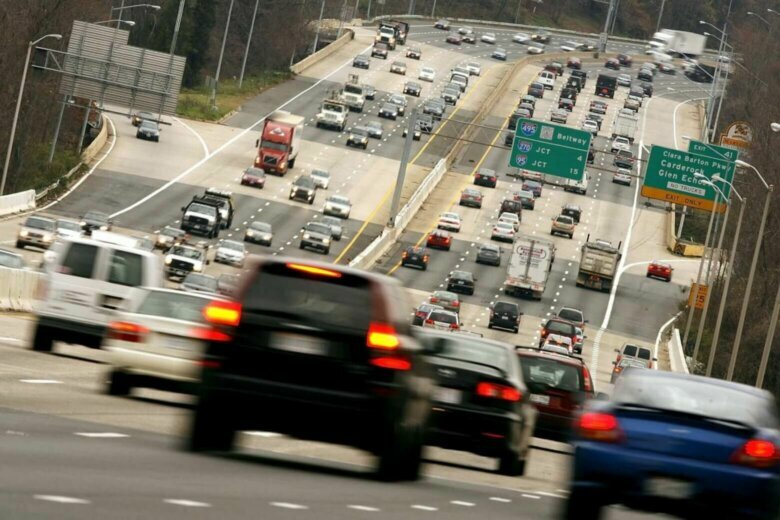This article was republished with permission from WTOP’s news partners at Maryland Matters. Sign up for Maryland Matters’ free email subscription today.

This content was republished with permission from WTOP’s news partners at Maryland Matters. Sign up for Maryland Matters’ free email subscription today.
A House panel has given its approval to a measure intended to hold the Maryland Department of Transportation to its promises on a controversial road-widening project.
House Bill 67 passed the Environment & Transportation Committee by a party-line vote of 16-6 on Friday evening.
The vote came as House and state Senate careened towards a Monday deadline to move legislation from one chamber to the other, an annual ritual known as crossover day.
The legislation, backed by Del. Marc Korman (D-Montgomery), is essentially a catalog of promises that Gov. Lawrence J. Hogan Jr. (R) and Transportation Secretary Greg Slater have made on behalf of the governor’s bid to rebuild the American Legion Bridge and widen portions of I-495 and I-270.
Hogan wants to have a consortium led by two Australian firms, Transurban and Macquarie, build “high-occupancy toll” lanes that would run alongside existing free lanes.
Motorists would pay a toll to enter the new lanes, which would speed them past vehicles using the existing lanes. Levies would fluctuate based on traffic volumes to guarantee speeds of 45 miles per hour.
Virginia, where Transurban has its U.S. headquarters, has a sprawling network of “express” lanes that use “dynamic” tolling.
The bill approved by the House panel on Friday is considerably longer than a similar measure that passed the full House last year. Provisions were added to reflect a raft of additional promises made by state transportation officials.
Added to last year’s bill is also a requirement that the state’s concessionaire enter a “project labor agreement” with local unions. MDOT would also be required to keep a promise to expand transit at the Shady Grove Metro station and Montgomery Mall.
HB 67 would also require that:
- at least 10% of toll revenue left after construction costs are paid would go to a local transit fund;
- mass transit vehicles be allowed to use HOT lanes for free;
- the new American Legion Bridge have a separate bike and pedestrian lane;
- no state funds will be used to acquire land before the Board of Public Works approves the project;
- MDOT share transportation data with local planners; and
- MDOT may not submit a public-private partnership contract to the Board of Public Works until a federally mandated environmental review is complete.
“What we have here now is a bill that I believe increases our oversight and does not harm the project as it’s going forward,” said Del. Kumar P. Barve (D-Montgomery), chairman of the Environment and Transportation Committee.
Senate President Bill Ferguson (D-Baltimore City) told reporters on Friday that he is “very aware” of the bill.
“I think Secretary Slater has been forthright thus far and has a very different approach than the prior secretary when it comes to these projects,” he said. “But of course the administration has to do what they said they would do.”
“I think we will probably see a bill that ensures high expectations but also doesn’t jeopardize projects,” the Montgomery County native added.
Baltimore Business Journal reported on Friday that the Maryland Transportation Authority has deferred action on a “pre-development” contract because one of the losing bidders has filed a protest with MDOT over its selection of Accelerate Maryland Partners, the consortium headed by Transurban and Macquarie.
The protest firm’s name has not been publicly identified.
bruce@marylandmatters.org








